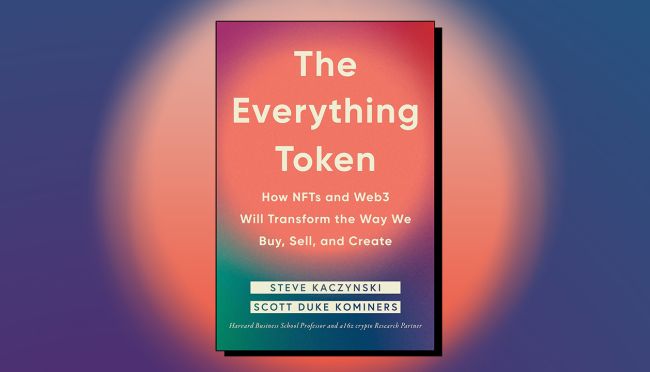
Work With Us
Private Coaching
Done-For-You
Short Courses
Client Reviews
Free Resources

Research Topics & Ideas: Finance

PS – This is just the start…
We know it’s exciting to run through a list of research topics, but please keep in mind that this list is just a starting point . To develop a suitable education-related research topic, you’ll need to identify a clear and convincing research gap , and a viable plan of action to fill that gap.
Overview: Finance Research Topics
- Corporate finance topics
- Investment banking topics
- Private equity & VC
- Asset management
- Hedge funds
- Financial planning & advisory
- Quantitative finance
- Treasury management
- Financial technology (FinTech)
- Commercial banking
- International finance

Corporate Finance
These research topic ideas explore a breadth of issues ranging from the examination of capital structure to the exploration of financial strategies in mergers and acquisitions.
- Evaluating the impact of capital structure on firm performance across different industries
- Assessing the effectiveness of financial management practices in emerging markets
- A comparative analysis of the cost of capital and financial structure in multinational corporations across different regulatory environments
- Examining how integrating sustainability and CSR initiatives affect a corporation’s financial performance and brand reputation
- Analysing how rigorous financial analysis informs strategic decisions and contributes to corporate growth
- Examining the relationship between corporate governance structures and financial performance
- A comparative analysis of financing strategies among mergers and acquisitions
- Evaluating the importance of financial transparency and its impact on investor relations and trust
- Investigating the role of financial flexibility in strategic investment decisions during economic downturns
- Investigating how different dividend policies affect shareholder value and the firm’s financial performance

Investment Banking
The list below presents a series of research topics exploring the multifaceted dimensions of investment banking, with a particular focus on its evolution following the 2008 financial crisis.
- Analysing the evolution and impact of regulatory frameworks in investment banking post-2008 financial crisis
- Investigating the challenges and opportunities associated with cross-border M&As facilitated by investment banks.
- Evaluating the role of investment banks in facilitating mergers and acquisitions in emerging markets
- Analysing the transformation brought about by digital technologies in the delivery of investment banking services and its effects on efficiency and client satisfaction.
- Evaluating the role of investment banks in promoting sustainable finance and the integration of Environmental, Social, and Governance (ESG) criteria in investment decisions.
- Assessing the impact of technology on the efficiency and effectiveness of investment banking services
- Examining the effectiveness of investment banks in pricing and marketing IPOs, and the subsequent performance of these IPOs in the stock market.
- A comparative analysis of different risk management strategies employed by investment banks
- Examining the relationship between investment banking fees and corporate performance
- A comparative analysis of competitive strategies employed by leading investment banks and their impact on market share and profitability
Private Equity & Venture Capital (VC)
These research topic ideas are centred on venture capital and private equity investments, with a focus on their impact on technological startups, emerging technologies, and broader economic ecosystems.
- Investigating the determinants of successful venture capital investments in tech startups
- Analysing the trends and outcomes of venture capital funding in emerging technologies such as artificial intelligence, blockchain, or clean energy
- Assessing the performance and return on investment of different exit strategies employed by venture capital firms
- Assessing the impact of private equity investments on the financial performance of SMEs
- Analysing the role of venture capital in fostering innovation and entrepreneurship
- Evaluating the exit strategies of private equity firms: A comparative analysis
- Exploring the ethical considerations in private equity and venture capital financing
- Investigating how private equity ownership influences operational efficiency and overall business performance
- Evaluating the effectiveness of corporate governance structures in companies backed by private equity investments
- Examining how the regulatory environment in different regions affects the operations, investments and performance of private equity and venture capital firms
Need a helping hand?
Asset Management
This list includes a range of research topic ideas focused on asset management, probing into the effectiveness of various strategies, the integration of technology, and the alignment with ethical principles among other key dimensions.
- Analysing the effectiveness of different asset allocation strategies in diverse economic environments
- Analysing the methodologies and effectiveness of performance attribution in asset management firms
- Assessing the impact of environmental, social, and governance (ESG) criteria on fund performance
- Examining the role of robo-advisors in modern asset management
- Evaluating how advancements in technology are reshaping portfolio management strategies within asset management firms
- Evaluating the performance persistence of mutual funds and hedge funds
- Investigating the long-term performance of portfolios managed with ethical or socially responsible investing principles
- Investigating the behavioural biases in individual and institutional investment decisions
- Examining the asset allocation strategies employed by pension funds and their impact on long-term fund performance
- Assessing the operational efficiency of asset management firms and its correlation with fund performance
Hedge Funds
Here we explore research topics related to hedge fund operations and strategies, including their implications on corporate governance, financial market stability, and regulatory compliance among other critical facets.
- Assessing the impact of hedge fund activism on corporate governance and financial performance
- Analysing the effectiveness and implications of market-neutral strategies employed by hedge funds
- Investigating how different fee structures impact the performance and investor attraction to hedge funds
- Evaluating the contribution of hedge funds to financial market liquidity and the implications for market stability
- Analysing the risk-return profile of hedge fund strategies during financial crises
- Evaluating the influence of regulatory changes on hedge fund operations and performance
- Examining the level of transparency and disclosure practices in the hedge fund industry and its impact on investor trust and regulatory compliance
- Assessing the contribution of hedge funds to systemic risk in financial markets, and the effectiveness of regulatory measures in mitigating such risks
- Examining the role of hedge funds in financial market stability
- Investigating the determinants of hedge fund success: A comparative analysis
Financial Planning and Advisory
This list explores various research topic ideas related to financial planning, focusing on the effects of financial literacy, the adoption of digital tools, taxation policies, and the role of financial advisors.
- Evaluating the impact of financial literacy on individual financial planning effectiveness
- Analysing how different taxation policies influence financial planning strategies among individuals and businesses
- Evaluating the effectiveness and user adoption of digital tools in modern financial planning practices
- Investigating the adequacy of long-term financial planning strategies in ensuring retirement security
- Assessing the role of financial education in shaping financial planning behaviour among different demographic groups
- Examining the impact of psychological biases on financial planning and decision-making, and strategies to mitigate these biases
- Assessing the behavioural factors influencing financial planning decisions
- Examining the role of financial advisors in managing retirement savings
- A comparative analysis of traditional versus robo-advisory in financial planning
- Investigating the ethics of financial advisory practices

The following list delves into research topics within the insurance sector, touching on the technological transformations, regulatory shifts, and evolving consumer behaviours among other pivotal aspects.
- Analysing the impact of technology adoption on insurance pricing and risk management
- Analysing the influence of Insurtech innovations on the competitive dynamics and consumer choices in insurance markets
- Investigating the factors affecting consumer behaviour in insurance product selection and the role of digital channels in influencing decisions
- Assessing the effect of regulatory changes on insurance product offerings
- Examining the determinants of insurance penetration in emerging markets
- Evaluating the operational efficiency of claims management processes in insurance companies and its impact on customer satisfaction
- Examining the evolution and effectiveness of risk assessment models used in insurance underwriting and their impact on pricing and coverage
- Evaluating the role of insurance in financial stability and economic development
- Investigating the impact of climate change on insurance models and products
- Exploring the challenges and opportunities in underwriting cyber insurance in the face of evolving cyber threats and regulations
Quantitative Finance
These topic ideas span the development of asset pricing models, evaluation of machine learning algorithms, and the exploration of ethical implications among other pivotal areas.
- Developing and testing new quantitative models for asset pricing
- Analysing the effectiveness and limitations of machine learning algorithms in predicting financial market movements
- Assessing the effectiveness of various risk management techniques in quantitative finance
- Evaluating the advancements in portfolio optimisation techniques and their impact on risk-adjusted returns
- Evaluating the impact of high-frequency trading on market efficiency and stability
- Investigating the influence of algorithmic trading strategies on market efficiency and liquidity
- Examining the risk parity approach in asset allocation and its effectiveness in different market conditions
- Examining the application of machine learning and artificial intelligence in quantitative financial analysis
- Investigating the ethical implications of quantitative financial innovations
- Assessing the profitability and market impact of statistical arbitrage strategies considering different market microstructures
Treasury Management
The following topic ideas explore treasury management, focusing on modernisation through technological advancements, the impact on firm liquidity, and the intertwined relationship with corporate governance among other crucial areas.
- Analysing the impact of treasury management practices on firm liquidity and profitability
- Analysing the role of automation in enhancing operational efficiency and strategic decision-making in treasury management
- Evaluating the effectiveness of various cash management strategies in multinational corporations
- Investigating the potential of blockchain technology in streamlining treasury operations and enhancing transparency
- Examining the role of treasury management in mitigating financial risks
- Evaluating the accuracy and effectiveness of various cash flow forecasting techniques employed in treasury management
- Assessing the impact of technological advancements on treasury management operations
- Examining the effectiveness of different foreign exchange risk management strategies employed by treasury managers in multinational corporations
- Assessing the impact of regulatory compliance requirements on the operational and strategic aspects of treasury management
- Investigating the relationship between treasury management and corporate governance
Financial Technology (FinTech)
The following research topic ideas explore the transformative potential of blockchain, the rise of open banking, and the burgeoning landscape of peer-to-peer lending among other focal areas.
- Evaluating the impact of blockchain technology on financial services
- Investigating the implications of open banking on consumer data privacy and financial services competition
- Assessing the role of FinTech in financial inclusion in emerging markets
- Analysing the role of peer-to-peer lending platforms in promoting financial inclusion and their impact on traditional banking systems
- Examining the cybersecurity challenges faced by FinTech firms and the regulatory measures to ensure data protection and financial stability
- Examining the regulatory challenges and opportunities in the FinTech ecosystem
- Assessing the impact of artificial intelligence on the delivery of financial services, customer experience, and operational efficiency within FinTech firms
- Analysing the adoption and impact of cryptocurrencies on traditional financial systems
- Investigating the determinants of success for FinTech startups

Commercial Banking
These topic ideas span commercial banking, encompassing digital transformation, support for small and medium-sized enterprises (SMEs), and the evolving regulatory and competitive landscape among other key themes.
- Assessing the impact of digital transformation on commercial banking services and competitiveness
- Analysing the impact of digital transformation on customer experience and operational efficiency in commercial banking
- Evaluating the role of commercial banks in supporting small and medium-sized enterprises (SMEs)
- Investigating the effectiveness of credit risk management practices and their impact on bank profitability and financial stability
- Examining the relationship between commercial banking practices and financial stability
- Evaluating the implications of open banking frameworks on the competitive landscape and service innovation in commercial banking
- Assessing how regulatory changes affect lending practices and risk appetite of commercial banks
- Examining how commercial banks are adapting their strategies in response to competition from FinTech firms and changing consumer preferences
- Analysing the impact of regulatory compliance on commercial banking operations
- Investigating the determinants of customer satisfaction and loyalty in commercial banking
International Finance
The folowing research topic ideas are centred around international finance and global economic dynamics, delving into aspects like exchange rate fluctuations, international financial regulations, and the role of international financial institutions among other pivotal areas.
- Analysing the determinants of exchange rate fluctuations and their impact on international trade
- Analysing the influence of global trade agreements on international financial flows and foreign direct investments
- Evaluating the effectiveness of international portfolio diversification strategies in mitigating risks and enhancing returns
- Evaluating the role of international financial institutions in global financial stability
- Investigating the role and implications of offshore financial centres on international financial stability and regulatory harmonisation
- Examining the impact of global financial crises on emerging market economies
- Examining the challenges and regulatory frameworks associated with cross-border banking operations
- Assessing the effectiveness of international financial regulations
- Investigating the challenges and opportunities of cross-border mergers and acquisitions
Choosing A Research Topic
These finance-related research topic ideas are starting points to guide your thinking. They are intentionally very broad and open-ended. By engaging with the currently literature in your field of interest, you’ll be able to narrow down your focus to a specific research gap .
When choosing a topic , you’ll need to take into account its originality, relevance, feasibility, and the resources you have at your disposal. Make sure to align your interest and expertise in the subject with your university program’s specific requirements. Always consult your academic advisor to ensure that your chosen topic not only meets the academic criteria but also provides a valuable contribution to the field.

Find The Perfect Research Topic

How To Choose A Research Topic: 5 Key Criteria
Learn how to systematically evaluate potential research topics and choose the best option for your dissertation, thesis or research paper.

Research Topics & Ideas: Automation & Robotics
A comprehensive list of automation and robotics-related research topics. Includes free access to a webinar and research topic evaluator.

Research Topics & Ideas: Sociology
A comprehensive list of sociology-related research topics. Includes free access to a webinar and research topic evaluator.

Research Topics & Ideas: Public Health & Epidemiology
A comprehensive list of public health-related research topics. Includes free access to a webinar and research topic evaluator.

Research Topics & Ideas: Neuroscience
A comprehensive list of neuroscience-related research topics. Includes free access to a webinar and research topic evaluator.
📄 FREE TEMPLATES
Research Topic Ideation
Proposal Writing
Literature Review
Methodology & Analysis
Academic Writing
Referencing & Citing
Apps, Tools & Tricks
The Grad Coach Podcast
11 Comments
thank you for suggest those topic, I want to ask you about the subjects related to the fintech, can i measure it and how?
Please guide me on selecting research titles
I am doing financial engineering. , can you please help me choose a dissertation topic?
I’m studying Banking and finance (MBA) please guide me on to choose a good research topic.
I am studying finance (MBA) please guide me to choose a good research topic.
I’m studying Master in Islamic Banking and Finance.
Can you suggest a good research topic. Please
I’m studying a Hournous degrees in Finance Management student at ium Ongwediva, Oshana region. Please help me with creating a research project topics for finance student I’m struggling formula one
I’m doing Masters in Islamic Banking and Finance. Would you kindly suggest a good research topic. Please
Hi Amen doing MBA in accounting and finance. Could you please subject a good research topic for me. Thanks
I’m studying a Hournous degree in Finance Management a student at International University of Management studying (IUM) Ongwediva, Oshana region Namibia . Please help me with creating a research project topics for finance student I’m struggling formula one
All is good and I need to selected one to help me
Submit a Comment Cancel reply
Your email address will not be published. Required fields are marked *
Save my name, email, and website in this browser for the next time I comment.
Submit Comment
- Print Friendly
- Have any questions?
- +91-9176966446
- [email protected]

- PhD Topic Selection
- Problem Identification
- Research Proposal
- Pilot Study
- PhD. Dissertation (Full)
- Ph.D. Dissertation (Part)
- Phd-Consultation
- PhD Coursework Abstract Writing Help
- Interim-Report
- Synopsis Preparation
- Power Point
- References Collection
- Conceptual Framework
- Theoretical Framework
- Annotated Bibliography
- Theorem Development
- Gap Identification
- Research Design
- Sample Size
- Power Calculation
- Qualitative Methodology
- Quantitative Methodology
- Primary Data Collection
- Secondary Data Collection
- Quantitative Statistics
- Textual / Content Analysis
- Biostatistics
- Econometrics
- Big Data Analytics
- Software Programming
- Computer Programming
- Translation
- Transcription
- Plagiarism Correction
- Formatting & Referencing
- Manuscript Rewriting
- Manuscript Copyediting
- Manuscript Peer Reviewing
- Manuscript Statistics
- PhD Manuscript Formatting Referencing
- Manuscript Plagiarism Correction
- Manuscript Editorial Comment Help
- Conference & Seminar Paper
- Writing for a journal
- Academic Statistics
- Journal Manuscript Writing
- Research Methodology
- PhD Animation Services
- Academic Law Writing
- Business & Management
- Engineering & Technology
- Arts & Humanities
- Economics & Finance Academic
- Biological & Life Science
- Medicine & Healthcare
- Computer Science & Information
- HIRE A RESEARCH ASSISTANT
Research topics for finance 2023
Research topics for finance 2023.
Finance is the study of money management. The economy runs the world, and financial decisions are made on a daily basis. Currency, loans, bonds, shares, and stocks are all banked, invested, and insured. From small start-ups to large multinational corporations (MNCs), everyone needs finance expertise for insurance and tax reporting. Emerging technologies are constantly changing the way people interact with money, and financial institutions gain from block chain, artificial intelligence and machine learning, cloud banking, and robotic process automation (RPA).
Are you prepared to be on the cutting edge of knowledge? With the help of our innovative platform, Latest research Topics, stay informed and involved. We keep you abreast of developments in today's quick-paced world by bringing you the most recent Ph.D. Topics examples on a variety of domains
As finance & economics is the most in-demand subject, choosing a topic for in-depth research might be difficult. PhD Assistance may assist you in selecting a topic in finance from a broad array of application industries and study latest technology that financial sector use.
- A topic modelling approach to machine learning in finance
- Dynamic topic networks to evaluate systemic risk in financial markets
- Power dynamics in infrastructure public-private partnerships financing
- A systematic review of Fintech developments and ramifications in Islamic Finance
- A study on Risk evaluation of blockchain-powered supply chain financing research
- Impact of privatization on of banks efficiency and profitability: Role of privatisation.
- Stock prices, and cash supply cycle.
- Creating self-employment and financial independence: Contrasting micro-finance banks, micro-finance institutions and their rural support campaigns.
- CAPM validation in guessing stock values in Bombay stock exchange.
- Using the evidence from the sugar industry and related industries to know stock returns and other basic variables.
- Sales price, debt equity, book, and organization size—which of these are an apt barometer of stock exchange returns.
- Mutual funds, their attributes, their performance in the UK.
- What are the optimal debt and equity ratio in various funds?
- Stock returns on capital market investments.
- Relation between return on investment and price-earning ratio.
- A study on price-earnings ratio to guess future growth patterns.
- How dividend pay-out ratio is impacted by the factor’s effect?
- Price-earnings ratio and growth—what’s the relation?
- Studying the relation between dividends and company’s earning in wheat processing industry in the UK.
- Mutual fund’s performance indicators and size of funds.
- Automobile sector in the UK and how the capital structure is determined.
- What factors contribute to a decision on mutual fund investment?
- Forecasting stock price through a model of dividend discount. A study on building industry.
- How macroeconomic variables impact stock sector of UK.
- Mutual fund performance assessment.
- Studying the stock returns by comparing sales price, debt-equity, and book market value.
- Investment spending in the building industry and cash flow. What is the relationship?
- Studying price-earnings ratio in calculating growth
- Impact of free cash flow in a firm’s investment.
- Long-haul performance of IPO’s in the UK. An empirical analysis
- Investment policy and financial leverage.
- Future developments in financial reinforcement learning Techniques
- Structure of the board of directors and the composition’s impact on an organization’s performance.
- How taxation affects an organization’s dividend payout ratio?
- Islamic (Ijara contract) financing and its client satisfaction percentage.
- How mergers and acquisitions affect the firm’s performance in the building sector?
- Causes of changes in price to earnings ratio.
- Share price fluctuations and reasons for fluctuations.
- Stock price, economic variables such as interest rate, inflation, and GDP.
- How profitability is impacted by capital structure.
- How a banks’ profitability is affected by interest rate changes.
- The rate of inflation and stock market returns. Is there a connection?
- Stock price volatility versus Dividend policy.
- Pharma sector and what determines the capital structure.
- Stock’s returns and how it is affected by leverage?
- Factors that forecast mutual fund’s performance in the UK.
- Results of various traits that lead to acquisitions and mergers in the UK.
- Factors impacting leverage in concrete sector industry in the UK.
- How the bank’s profitability is affected by liquidity?
- Free cash flows and investment in the textile sector in the UK. Is there a connection?
- How working capital impacts a firm’s revenue and profits? Study of UK concrete sector.
- Is there a connection between capital structure and corporate strategy?
- Judging the profitability factors of Islamic banking in UAE.
- Does turnover affect inflation?
- Is the investment decision affected by dividend?
- Study of assets and liabilities in balance sheets of various firms.
- The fiscal policy’s impact on the economy of India.
- Bond market capitalization in Australia. What are the factors?
- CPI and bond price. Is there a connection?
- A literature review on Future Applications of financial instruments 2023
In conclusion, know the statistical techniques and data collection methods before deciding upon a topic.
Also, to get assistance on dissertation topics in education, interior design thesis topics, physiotherapy research topics, dissertation topics in microbiology, IIM dissertation topics, sociology dissertation topics, political science dissertation topics, dissertation topics in pediatrics, and also for Research topics in English literature for Phd, avail our Ph.D topic selection support service today !
Need help with your Dissertation Service?
Take a look at topic selection service:
Click Here!
Quick Contact
Dissertation.

Our Dissertation Writing service can help with everything from full dissertations to individual chapters.

Literature Review

Referencing Tools
- Harvard Referencing Tool
- Vancouver Referencing Tool
- APA Referencing Tool

- Privacy Overview
- Strictly Necessary Cookies
- 3rd Party Cookies
This website uses cookies so that we can provide you with the best user experience possible. Cookie information is stored in your browser and performs functions such as recognising you when you return to our website and helping our team to understand which sections of the website you find most interesting and useful.
Strictly Necessary Cookie should be enabled at all times so that we can save your preferences for cookie settings.
If you disable this cookie, we will not be able to save your preferences. This means that every time you visit this website you will need to enable or disable cookies again.
This website uses Google Analytics to collect anonymous information such as the number of visitors to the site, and the most popular pages.
Keeping this cookie enabled helps us to improve our website.
Please enable Strictly Necessary Cookies first so that we can save your preferences!
50+ Best Finance Dissertation Topics For Research Students In 2024
Link Copied
Share on Facebook
Share on Twitter
Share on LinkedIn

Finance Dissertation Made Easier!
Embarking on your dissertation adventure? Look no further! Choosing the right finance dissertation topics is like laying the foundation for your research journey in finance, and we're here to light up your path. In this article, we will be diving deep into why dissertation topics in finance matter so much. We've got some golden writing tips to share with you! We're also unveiling the secret recipe for structuring a stellar finance dissertation and exploring intriguing topics across various finance sub-fields. Here is a list of finance dissertation topics that will surely set your research spirit on fire!
What is a Finance Dissertation?
Finance dissertations are academic papers that delve into specific finance topics chosen by students, covering areas such as stock markets , banking , risk management , and healthcare finance . These dissertations require extensive research to create a compelling report and contribute to the student's confidence and satisfaction in the field of finance. Now, let's understand why these dissertations are so important and why choosing the right finance dissertation topics is crucial!
Importance of Finance Dissertation Topics
Choosing the dissertation topics for finance students is essential as it will influence the course of one’s research. It determines the direction and scope of your study. You must make sure that the finance dissertation topics you choose are relevant to your field of interest. Here are a few reasons why finance thesis topics are important:
1. Relevance
Opting for relevant finance thesis topics ensures that your research contributes to the existing body of knowledge and addresses contemporary issues in finance. Choosing a dissertation topic relevant to the industry can make a meaningful impact and advance understanding in your chosen area.
2. Personal Interest
Selecting finance dissertation topics that align with your interests and career goals is vital. When genuinely passionate about your research area, you are more likely to stay motivated during the dissertation process. Your interest will drive you to explore the subject thoroughly and produce high-quality work.
3. Future Opportunities
Well-chosen finance dissertation topics can open doors to various future opportunities. They can enhance your employability by showcasing your expertise in a specific finance area . They may also lead to potential research collaborations and invitations to conferences in your field of interest.
4. Academic Supervision
Your choice of topics for dissertation in finance also influences the availability of academic supervisors with expertise in your chosen area. Selecting a well-defined research area increases the likelihood of finding a supervisor to guide you effectively throughout the dissertation . Their knowledge and guidance will greatly contribute to the success of your research.
Writing Tips for Finance Dissertation
Writing a dissertation requires a lot of planning , formatting , and structuring . It starts with deciding on topics for a dissertation in finance, conducting tons of research, deciding on methods, and so on. Below are some tips to assist you along the way, and here is a blog on the 10 tips on writing a dissertation that can give you more information, should you need it!
1. Select a Manageable Topic
It is important to choose finance research topics within the given timeframe and resources. Select a research area that interests you and aligns with your career goals. This will help you stay inspired throughout the dissertation process.
2. Conduct a Thorough Literature Review
A comprehensive literature review forms the backbone of your research. After choosing the finance dissertation topics, dive deep into academic papers , books , and industry reports . Gain a solid understanding of your chosen area to identify research gaps and establish the significance of your study.
3. Define Clear Research Objectives
Clearly define your dissertation's research questions and objectives. It will provide a clear direction for your research and guide your data collection, analysis, and overall structure. Ensure your objectives are specific , measurable , achievable , relevant , and time-bound (SMART).
4. Collect and Analyse Data
Depending on your research methodology and your finance dissertation topics, collect and analyse relevant data to support your findings. It may involve conducting surveys , interviews , experiments , and analysing existing datasets . Choose appropriate statistical techniques and qualitative methods to derive meaningful insights from your data.
5. Structure and Organisation
Pay attention to the structure and organisation of your dissertation. Follow a logical progression of chapters and sections, ensuring that each chapter contributes to the overall coherence of your study. Use headings , subheadings , and clear signposts to guide the reader through your work.
6. Proofread and Edit
Once you have completed the writing process, take the time to proofread and edit your dissertation carefully. Check for clarity , coherence , and proper grammar . Ensure that your arguments are well-supported, and eliminate any inconsistencies or repetitions. Pay attention to formatting, citation styles, and consistency in referencing throughout your dissertation.
Don't let student accommodation hassles derail your finance research.
Book through amber today!
Finance Dissertation Topics
Now that you know what a finance dissertation is and why they are important, it's time to have a look at some of the best finance dissertation topics. For your convenience, we have segregated these topics into categories, including cryptocurrency , risk management , internet banking , and so many more. So, let's dive right in and explore the best finance dissertation topics:
Dissertation Topics in Finance Related to Cryptocurrency
1. The Impact of Regulatory Frameworks on the Volatility and Liquidity of Cryptocurrencies. 2. Exploring the Factors Influencing Cryptocurrency Adoption: A Comparative Study. 3. Assessing the Efficiency and Market Integration of Cryptocurrency Exchanges. 4. An Analysis of the Relationship between Cryptocurrency Prices and Macroeconomic Factors. 5. The Role of Initial Coin Offerings (ICOs) in Financing Startups: Opportunities and Challenges.
Dissertation Topics in Finance Related to Risk Management
1. The Effectiveness of Different Risk Management Strategies in Mitigating Financial Risks in Banking Institutions. 2. The Role of Derivatives in Hedging Financial Risks: A Comparative Study. 3. Analysing the Impact of Risk Management Practices on Firm Performance: A Case Study of a Specific Industry. 4. The Use of Stress Testing in Evaluating Systemic Risk: Lessons from the Global Financial Crisis. 5. Assessing the Relationship between Corporate Governance and Risk Management in Financial Institutions.
Dissertation Topics in Finance Related to Internet Banking
1. Customer Adoption of Internet Banking: An Empirical Study on Factors Influencing Usage. 2. Enhancing Security in Internet Banking: Exploring Biometric Authentication Technologies. 3. The Impact of Mobile Banking Applications on Customer Engagement and Satisfaction. 4. Evaluating the Efficiency and Effectiveness of Internet Banking Services in Emerging Markets. 5. The Role of Social Media in Shaping Customer Perception and Adoption of Internet Banking. 6. Fraud and Identity Theft are Accomplished via Internet Banking.
Dissertation Topics in Finance Related to Microfinance
1. The Impact of Microfinance on Poverty Alleviation: A Comparative Study of Different Models. 2. Exploring the Role of Microfinance in Empowering Women Entrepreneurs. 3. Assessing the Financial Sustainability of Microfinance Institutions in Developing Countries. 4. The Effectiveness of Microfinance in Promoting Rural Development: Evidence from a Specific Region. 5. Analysing the Relationship between Microfinance and Entrepreneurial Success: A Longitudinal Study.
Dissertation Topics in Finance Related to Retail and Commercial Banking
1. The Impact of Digital Transformation on Retail and Commercial Banking: A Case Study of a Specific Bank. 2. Customer Satisfaction and Loyalty in Retail Banking: An Analysis of Service Quality Dimensions. 3. Analysing the Relationship between Bank Branch Expansion and Financial Performance. 4. The Role of Fintech Startups in Disrupting Retail and Commercial Banking: Opportunities and Challenges. 5. Assessing the Impact of Mergers and Acquisitions on the Performance of Retail and Commercial Banks.
Dissertation Topics in Finance Related to Alternative Investment
1. The Performance and Risk Characteristics of Hedge Funds: A Comparative Analysis. 2. Exploring the Role of Private Equity in Financing and Growing Small and Medium-Sized Enterprises. 3. Analysing the Relationship between Real Estate Investments and Portfolio Diversification. 4. The Potential of Impact Investing: Evaluating the Social and Financial Returns. 5. Assessing the Risk-Return Tradeoff in Cryptocurrency Investments: A Comparative Study.
Dissertation Topics in Finance Related to International Affairs
1. The Impact of Exchange Rate Volatility on International Trade: A Case Study of a Specific Industry. 2. Analysing the Effectiveness of Capital Controls in Managing Financial Crises: Comparative Study of Different Countries. 3. The Role of International Financial Institutions in Promoting Economic Development in Developing Countries. 4. Evaluating the Implications of Trade Wars on Global Financial Markets. 5. Assessing the Role of Central Banks in Managing Financial Stability in a Globalised Economy.
Dissertation Topics in Finance Related to Sustainable Finance
1. The Impact of Sustainable Investing on Financial Performance. 2. The Role of Green Bonds in Financing Climate Change Mitigation and Adaptation. 3. The Development of Carbon Markets. 4. The Use of Environmental, Social, and Governance (ESG) Factors in Investment Decision-Making. 5. The Challenges and Opportunities of Sustainable Finance in Emerging Markets.
Dissertation Topics in Finance Related to Investment Banking
1. The Valuation of Distressed Assets. 2. The Pricing of Derivatives. 3. The Risk Management of Financial Institutions. 4. The Regulation of Investment Banks. 5. The Impact of Technology on the Investment Banking Industry.
Dissertation Topics in Finance Related to Actuarial Science
1. The Development of New Actuarial Models for Pricing Insurance Products. 2. The Use of Big Data in Actuarial Analysis. 3. The Impact of Climate Change on Insurance Risk. 4. The Design of Pension Plans That Are Sustainable in the Long Term. 5. The Use of Actuarial Science to Manage Risk in Other Industries, Such as Healthcare and Finance.
Dissertation Topics in Finance Related to Corporate Finance
1. Study the Relations Between Corporate Governance Structures and Financial Performance 2. Testing the Effects of Capital Structure on Firm Performance Across Different Industries 3. Effectiveness of Financial Management Practices in Emerging Markets 4. Integrating Sustainability and CSR Initiatives Impacts a Corporation’s Financial Performance and Enhances its Brand Reputation. 5. A Comparative Study of the Financing Strategies Employed in Mergers and Acquisitions.
Tips To Find Good Finance Dissertation Topics
Embarking on a journey of dissertation reports on finance topics requires careful consideration of various factors. Your choice of topic in finance research topics is pivotal, as it sets the stage for the entire research process. We suggest the following tips that can help you pick the perfect dissertation topic:
1. Identify your interests and strengths 2. Check for current relevance 3. Feedback from your superiors 4. Finalise the research methods 5. Gather the data 6. Work on the outline of your dissertation 7. Make a draft and proofread it
How To Plan Your Work on a Finance Dissertation?
The students are expected to submit their dissertation by the end of the study course. Students are prone to face a lot of difficulties while working on their dissertation. In such cases, proper planning may be your best bet! Keep in mind that the main aim of writing a dissertation is an opportunity to demonstrate the depths of your research abilities. We are providing you with a short step-by-step guide that will help you plan your work.
1. Choose a topic that interests you 2. Make sure to discuss the same with your supervisor 3. Post-discussion, work on the feedback given by the supervisor 4. Narrow down the research methods that will prove the significance of your chosen topic 5. Gather all the required information from relevant sources 6. Analyse the acquired results after a thorough research 7. Prepare a draft and proofread it 8. Connect with your supervisor/advisor and see if any additions are to be made 9. Make the required edits 10. Prepare the final dissertation
Lastly, we have discussed the importance of finance thesis topics and provided valuable writing tips and tips for finding the right topic. We have also presented a list of thesis topics for finance students within various subfields. With this, we hope you have great ideas for finance dissertations. Good luck with your finance research journey!
Frequently Asked Questions
How do i choose a dissertation topic in finance, what is the best topic for a thesis in finance, where can i find a dissertation topic in finance, what is the recommended length for a finance dissertation, how do you write a dissertation in finance.
Your ideal student home & a flight ticket awaits
Follow us on :

Related Posts

10 Best Engineering Universities in Australia in 2024
.jpg)
Your Guide to Postgraduate Courses in Australia in 2024
.jpg)
9 Best Online Learning Resources

amber © 2024. All rights reserved.
4.6/5 on Trustpilot
Rated as "Excellent" • 5000+ Reviews by students
Rated as "Excellent" • 5000+ Reviews by Students

Accounting and Finance Thesis Topics

This page provides a comprehensive list of accounting and finance thesis topics designed to assist students in selecting an impactful subject for their thesis. Whether you are pursuing undergraduate, graduate, or postgraduate studies, the diverse array of topics presented here covers a broad spectrum of specialties within the field of accounting and finance. From traditional areas like audit and taxation to emerging fields like fintech and behavioral finance, this collection aims to cater to a variety of research interests and academic requirements. Each category is meticulously curated to inspire innovative thinking and encourage a deeper exploration of both established and contemporary issues in the discipline.
600 Accounting and Finance Thesis Topics

Academic Writing, Editing, Proofreading, And Problem Solving Services
Get 10% off with 24start discount code, browse accounting and finance thesis topics:.
- Accounting Thesis Topics
- Audit Thesis Topics
- Banking Thesis Topics
- Behavioral Finance Thesis Topics
- Capital Markets Thesis Topics
- Corporate Finance Thesis Topics
- Corporate Governance Thesis Topics
- Finance Thesis Topics
- Financial Economics Thesis Topics
- Financial Management Thesis Topics
- Fintech Thesis Topics
- Insurance Thesis Topics
- International Finance Thesis Topics
- Investment Thesis Topics
- Management Accounting Thesis Topics
- Personal Finance Thesis Topics
- Public Finance Thesis Topics
- Quantitative Finance Thesis Topics
- Risk Management Thesis Topics
- Taxation Thesis Topics
1. Accounting Thesis Topics
- The impact of artificial intelligence on financial reporting and compliance.
- Blockchain technology in accounting: disrupting traditional processes.
- The role of ethical leadership in promoting sustainable accounting practices.
- Comparative analysis of global accounting standards post-IFRS adoption.
- Cultural influences on multinational accounting practices.
- The future of green accounting in corporate sustainability initiatives.
- Digital currencies and their accounting implications within multinational corporations.
- The efficacy of automated accounting systems in small to medium enterprises.
- Forensic accounting as a tool against cyber financial fraud.
- Tax strategy and accounting ethics in the digital age.
- Non-profit accounting challenges in a post-pandemic world.
- Gig economy impacts on financial reporting and tax obligations.
- Continuous auditing in real-time financial data environments.
- Ethical conflicts in accounting decisions: a case study analysis.
- The integration of blockchain for transparency in financial auditing.
- Strategic management accounting techniques in agile organizations.
- Predictive analytics in accounting and its impact on business strategy.
- Cost management innovations in healthcare accounting.
- Regulatory impacts on financial disclosures and corporate accounting.
- Innovative financial planning tools for startup sustainability.
- The role of environmental, social, and governance (ESG) criteria in financial decision-making.
- Public sector accountability and accounting reforms.
- Big data analytics in financial statement analysis.
- Adapting accounting frameworks for emerging markets.
- The dynamics of accounting professionalism and ethical standards.
- Real-time financial reporting: challenges and advantages.
- Mergers and acquisitions: accounting for corporate restructuring.
- Artificial intelligence in audit operations: reshaping traditional frameworks.
- Corporate sustainability reporting: critical analysis of current practices.
- Tax evasion strategies and their impact on international accounting standards.
2. Audit Thesis Topics
- The effectiveness of continuous auditing in detecting and preventing fraud.
- Implementing a risk-based auditing framework in emerging markets.
- Enhancing corporate governance with robust audit committee functions.
- The comparative reliability of external audits versus internal controls.
- The impact of the latest regulatory frameworks on auditing standards.
- Ensuring auditor independence in a complex corporate milieu.
- Blockchain applications in enhancing audit trail transparency.
- Strategies for cybersecurity audits in financial institutions.
- Cultural impacts on audit practices in global organizations.
- The future of auditing: integrating real-time data analytics.
- The relationship between audit quality and investment decisions.
- Leveraging machine learning for enhanced audit precision.
- Auditing ethics in the face of financial technology innovations.
- The role of internal audits in reinforcing cybersecurity measures.
- Auditing challenges in decentralized platforms using blockchain technology.
- Comparative study of traditional and modern audit methodologies.
- The impact of data privacy regulations on audit practices globally.
- Developing effective audit strategies for cloud-based accounting systems.
- The role of audits in enhancing business resilience during economic downturns.
- Fraud detection techniques in an AI-driven audit environment.
- The effectiveness of environmental auditing in promoting corporate sustainability.
- Auditing for non-financial information: challenges and methodologies.
- Enhancing the transparency of public sector audits to improve trust.
- Implementing forensic auditing techniques in corporate fraud detection.
- The evolution of auditing standards in response to global financial crises.
- The role of technology in transforming audit documentation and reporting.
- Impact of auditor-client relationships on audit quality.
- Strategies for overcoming challenges in cross-border audit practices.
- Auditing supply chain operations for financial integrity and sustainability.
- The future of regulatory audits in a dynamically changing global market.
3. Banking Thesis Topics
- The future of digital banking post-COVID-19.
- Analyzing the impact of blockchain technology on international banking transactions.
- The role of central banks in managing digital currency implementations.
- Sustainable banking practices: integrating ESG factors into bank operations.
- The evolution of consumer banking behavior influenced by mobile technologies.
- Cybersecurity strategies in banking: preventing breaches in a digital age.
- The effectiveness of monetary policy in digital banking ecosystems.
- Banking regulations and their impact on global economic stability.
- Fintech innovations and their integration into traditional banking systems.
- The impact of banking deserts on rural economic development.
- Artificial intelligence in banking: reshaping customer service and risk management.
- The role of ethical banking in promoting financial inclusion.
- Impact of Brexit on UK banking: challenges and opportunities.
- Stress testing in banks: approaches and implications for financial stability.
- Consumer data protection in online banking: challenges and solutions.
- The influence of microfinancing on developing economies.
- The impact of interest rate changes on banking profitability.
- Role of banking in supporting sustainable energy financing.
- Technological disruptions in banking: a threat or an opportunity?
- The effect of global banking regulations on emerging market economies.
- Strategies for managing credit risk in post-pandemic recovery phases.
- The growing role of Islamic banking in the global finance sector.
- The impact of non-traditional banking platforms on financial services.
- Data analytics in banking: enhancing decision-making processes.
- Cross-border banking challenges in a globalized economy.
- The future of branchless banking: implications for customer engagement.
- Banking transparency and its effects on consumer trust.
- The role of banks in facilitating international trade.
- Innovations in mortgage banking and their impact on housing markets.
- The effects of banking consolidation on competition and service delivery.
4. Behavioral Finance Thesis Topics
- The psychological effects of financial losses on investment behavior.
- Behavioral biases in financial decision-making: a case study of stock market investors.
- The impact of social media on investor behavior and market outcomes.
- Cognitive dissonance and its effect on personal financial planning.
- The role of emotional intelligence in financial trading success.
- Exploring the herding behavior in cryptocurrency markets.
- Behavioral finance strategies to mitigate impulse spending.
- The influence of cultural factors on investment decisions.
- Psychological factors driving risk tolerance among millennials.
- The effect of behavioral finance education on individual investment choices.
- Overconfidence and trading: an analysis of its impact on stock returns.
- Decision-making processes under financial stress: a behavioral perspective.
- The role of behavioral factors in the success of financial advisement.
- The impact of behavioral insights on retirement savings plans.
- Anchoring bias in financial forecasting and market predictions.
- The role of optimism and pessimism in financial markets.
- Behavioral finance and its role in shaping sustainable investing.
- Understanding the gap between perceived and actual financial knowledge.
- Behavioral interventions to improve financial literacy.
- The influence of personality traits on financial decision-making.
- Behavioral economics: redesigning financial products for better decision outcomes.
- The effectiveness of nudge theory in personal finance management.
- The impact of financial anxiety on decision-making efficiency.
- The behavioral aspects of financial negotiation.
- Market sentiment analysis: behavioral finance in algorithmic trading.
- The psychological impact of financial news on market movements.
- Behavioral finance insights into crowd-funding behaviors.
- Ethical considerations in behavioral finance research.
- The influence of age and life stage on financial risk-taking.
- Behavioral finance in corporate decision-making: case studies of strategic financial planning.
5. Capital Markets Thesis Topics
- The future trajectory of global capital markets in the post-pandemic era.
- Impact of quantitative easing on emerging market economies.
- The role of technology in enhancing liquidity in capital markets.
- Analysis of market efficiency in different economic cycles.
- The effects of political instability on capital market performance.
- Environmental, Social, and Governance (ESG) criteria and their impact on capital market trends.
- Cryptocurrency as an emerging asset class in capital markets.
- The role of sovereign wealth funds in global capital markets.
- Algorithmic trading and its influence on market dynamics.
- The impact of international sanctions on capital markets.
- High-frequency trading: market benefits and systemic risks.
- The role of capital markets in financing green energy initiatives.
- Impact of fintech on traditional capital market structures.
- Corporate bond markets and their responsiveness to economic changes.
- The influence of central bank policies on capital market stability.
- Market anomalies and behavioral economics: exploring the deviations from market efficiency.
- The role of investor sentiment in capital market fluctuations.
- Crowdfunding as an alternative financing mechanism in capital markets.
- Regulatory challenges facing capital markets in developing countries.
- The future of securitization post-global financial crisis.
- Derivatives markets and their role in risk management.
- The impact of technology IPOs on market perceptions.
- Venture capital and its influence on market innovation.
- Corporate governance and its effect on equity prices.
- The role of market makers in maintaining market stability.
- Ethical investing and its traction in the capital market.
- The impact of demographic shifts on investment trends.
- The interplay between macroeconomic policies and capital market growth.
- Leveraging machine learning for capital market predictions.
- The role of media in shaping public perceptions of capital markets.
6. Corporate Finance Thesis Topics
- The impact of global economic shifts on corporate financing strategies.
- Analyzing the role of corporate finance in driving sustainable business practices.
- The influence of digital transformation on corporate financial management.
- Risk management in corporate finance during uncertain economic times.
- The effects of corporate financial restructuring on shareholder value.
- Financing innovation: How corporations fund new technology investments.
- The role of private equity in corporate finance.
- Strategies for managing corporate debt in a fluctuating interest rate environment.
- Impact of mergers and acquisitions on corporate financial health.
- ESG (Environmental, Social, and Governance) factors in corporate finance decisions.
- The future of corporate finance in the era of blockchain and cryptocurrencies.
- The role of financial analytics in optimizing corporate investment decisions.
- Corporate finance challenges in emerging markets.
- Venture capital and its impact on corporate growth.
- Corporate financial transparency and its effect on investor relations.
- The role of CFOs in navigating new global tax laws.
- Financial technology innovations and their implications for corporate finance.
- The impact of international trade agreements on corporate financing.
- Corporate finance strategies in the healthcare sector.
- The influence of shareholder activism on corporate financial policies.
- The future of corporate banking relationships.
- Capital allocation decisions in multinational corporations.
- The role of artificial intelligence in financial forecasting and budgeting.
- The impact of demographic changes on corporate finance strategies.
- Managing financial risks associated with climate change.
- The role of corporate finance in business model innovation.
- Financing strategies for startups versus established firms.
- The effect of corporate culture on financial decision-making.
- Corporate governance and its influence on financial risk management.
- The evolving landscape of securities regulations and its impact on corporate finance.
7. Corporate Governance Thesis Topics
- The impact of governance structures on corporate sustainability and responsibility.
- Board diversity and its effect on corporate decision-making processes.
- Corporate governance mechanisms to combat corruption and enhance transparency.
- The role of stakeholder engagement in shaping governance practices.
- Analyzing the effectiveness of corporate governance codes across different jurisdictions.
- The influence of technology on corporate governance practices.
- Governance challenges in family-owned businesses.
- The impact of corporate governance on firm performance during economic crises.
- Shareholder rights and their enforcement in emerging market economies.
- The future of corporate governance in the digital economy.
- The role of ethics in corporate governance.
- Corporate governance and risk management: interlinkages and impacts.
- The effects of regulatory changes on corporate governance standards.
- ESG integration in corporate governance.
- The role of internal audits in strengthening corporate governance.
- Corporate governance in non-profit organizations.
- The influence of activist investors on corporate governance reforms.
- The effectiveness of whistleblower policies in corporate governance.
- Cybersecurity governance in large corporations.
- Succession planning and governance in large enterprises.
- The impact of international governance standards on local practices.
- The role of governance in preventing financial fraud.
- Corporate governance in the fintech industry.
- The relationship between corporate governance and corporate social responsibility.
- The impact of global economic policies on corporate governance.
- Data privacy and security: Governance challenges in the information era.
- The role of governance in managing corporate crises.
- The impact of leadership styles on corporate governance effectiveness.
- Corporate governance and its role in enhancing business competitiveness.
- The evolving role of board committees in strategic decision-making.
8. Finance Thesis Topics
- Financial implications of global climate change initiatives.
- The future of financial markets in the face of geopolitical uncertainties.
- The impact of microfinance on poverty alleviation in developing countries.
- Cryptocurrency: emerging financial technology and its regulatory challenges.
- The role of financial institutions in fostering economic resilience.
- Innovations in financial products for an aging global population.
- The impact of digital wallets on traditional banking systems.
- Financial literacy and its role in promoting socio-economic equality.
- The effect of fintech on the global remittance landscape.
- Risk management strategies in finance post-global financial crisis.
- The influence of behavioral finance on investment strategies.
- The evolving role of central banks in digital currency markets.
- Financing sustainable urban development.
- The impact of artificial intelligence on personal finance management.
- Peer-to-peer lending and its effect on traditional credit markets.
- The role of finance in facilitating international trade and development.
- The implications of Brexit on European financial markets.
- Financial derivatives and their role in modern economies.
- The effects of sanctions on financial transactions and economic stability.
- The future of investment banking in a technology-driven world.
- Financial models for predicting economic downturns.
- The impact of financial education on consumer behavior.
- Securitization of assets: benefits and risks.
- The role of financial services in disaster recovery and resilience.
- Emerging trends in global investment patterns.
- Financial strategies for managing corporate mergers and acquisitions.
- The influence of cultural factors on financial systems and practices.
- The effectiveness of financial sanctions as a geopolitical tool.
- The future of financial privacy in an interconnected world.
- The role of finance in promoting renewable energy investments.
9. Financial Economics Thesis Topics
- The economic impact of quantitative easing in developed versus emerging markets.
- The implications of negative interest rates for global economies.
- Economic predictors of financial market behavior in crisis periods.
- The relationship between government debt and economic growth.
- Economic consequences of income inequality on national financial stability.
- The effects of consumer confidence on economic recovery.
- The role of economic policy in shaping housing market dynamics.
- The impact of global trade wars on financial economics.
- The influence of demographic shifts on economic policy and financial markets.
- Macroeconomic factors influencing cryptocurrency adoption.
- The role of economic theory in developing financial regulation.
- The impact of tourism economics on national financial health.
- Economic strategies for combating hyperinflation.
- The role of sovereign wealth funds in global economic stability.
- Economic analyses of environmental and resource economics.
- The implications of fintech on traditional economic models.
- Economic impacts of global pandemic responses by governments.
- The future of labor markets in a digitally transforming economy.
- Economic considerations in renewable energy finance.
- The economics of privacy and data security in financial transactions.
- The role of international economic organizations in financial regulation.
- Economic effects of technological innovation on traditional industries.
- The impact of economic sanctions on international relations and finance.
- The role of consumer spending in economic recovery phases.
- Economic policies for addressing wealth gaps.
- The economic impact of climate change on financial sectors.
- The role of economic research in crafting sustainable development goals.
- The economics of health and its impact on national economies.
- Global economic trends and their implications for financial forecasting.
- The relationship between educational economics and workforce development.
10. Financial Management Thesis Topics
- The strategic role of financial management in corporate sustainability.
- Impact of global financial regulations on corporate financial management.
- Financial management techniques for optimizing supply chain operations.
- The role of financial management in crisis recovery and resilience.
- Emerging technologies in financial management systems.
- The impact of corporate social responsibility on financial management strategies.
- Financial planning for long-term business growth in volatile markets.
- The influence of global economic conditions on financial management practices.
- Financial management challenges in the nonprofit sector.
- The role of financial management in mergers and acquisitions.
- The impact of digital currencies on corporate financial management.
- Financial risk management strategies in an era of global uncertainty.
- The role of financial management in enhancing operational efficiency.
- Financial management best practices in the tech industry.
- The impact of consumer behavior trends on financial management.
- Financial management in the healthcare sector: Challenges and strategies.
- The influence of artificial intelligence on financial decision-making processes.
- Financial management strategies for small and medium-sized enterprises (SMEs).
- The role of financial management in international expansion.
- Ethical considerations in financial management practices.
- Financial management in the energy sector: challenges and innovations.
- Financial strategies for managing environmental risks.
- The role of financial management in startup success and sustainability.
- The impact of financial transparency on corporate governance.
- Financial management and investor relations: integrating strategic communication.
- The role of financial management in educational institutions.
- Managing financial instability in emerging markets.
- Financial management practices in the gig economy.
- The role of financial managers in driving business model innovations.
- Financial management tools for effective capital allocation.
11. Fintech Thesis Topics
- The impact of blockchain on global payment systems.
- Regulation challenges for fintech innovations: A cross-country analysis.
- The role of fintech in democratizing access to financial services.
- Machine learning and artificial intelligence in predictive financial modeling.
- The evolution of peer-to-peer lending platforms and their impact on traditional banking.
- Cryptocurrency adoption: consumer behavior and market dynamics.
- The future of robo-advisors in personal finance management.
- The impact of mobile banking on financial inclusion in developing countries.
- Fintech solutions for microfinance: scalability and sustainability issues.
- Data privacy and security challenges in fintech applications.
- The role of fintech in enhancing cybersecurity in financial transactions.
- The impact of fintech on traditional banking employment.
- Regulatory technology (RegTech) for compliance management: trends and challenges.
- Fintech and its role in combating financial crime and money laundering.
- The influence of fintech on the insurance industry: insurtech innovations.
- Fintech investments: market trends and future prospects.
- The role of big data analytics in fintech.
- Digital wallets and the future of consumer spending behavior.
- Impact of fintech on wealth management and investment strategies.
- Challenges and opportunities of implementing distributed ledger technology in financial services.
- Consumer trust and fintech: building relationships in a digital age.
- The evolution of payment gateways: fintech at the forefront.
- Fintech’s impact on cross-border payments and remittances.
- The role of fintech in the development of smart contracts.
- The influence of fintech on financial market transparency.
- Fintech as a driver for financial sector innovation in emerging markets.
- The impact of artificial intelligence on risk assessment in fintech.
- Fintech and financial stability: an analysis of systemic risks.
- The role of fintech in streamlining government and public sector finance.
- Ethical considerations in fintech: balancing innovation with consumer protection.
12. Insurance Thesis Topics
- The future of insurance in the age of climate change.
- The impact of artificial intelligence on underwriting and risk management.
- Cyber risk insurance: emerging challenges and opportunities.
- The role of insurance in managing public health crises.
- Innovations in health insurance: technology-driven approaches to coverage.
- The evolution of automotive insurance in the era of autonomous vehicles.
- Insurance fraud detection using big data analytics.
- Regulatory challenges in the global insurance market.
- The influence of behavioral economics on insurance product design.
- The role of reinsurance in stabilizing insurance markets.
- Insurance and financial inclusion: strategies for reaching underserved communities.
- The impact of technological advancements on insurance pricing models.
- The role of insurance in disaster risk reduction and management.
- Customer data management in the insurance industry: privacy versus personalization.
- The future of life insurance: adapting to demographic shifts.
- The integration of IoT devices in home insurance policies.
- Blockchain applications in the insurance industry.
- The impact of social media on insurance marketing and customer engagement.
- Insurance as a tool for sustainable business practices.
- The role of insurance companies in promoting corporate social responsibility.
- The challenges of health insurance in a post-pandemic world.
- Emerging risks and insurance: addressing the needs of the gig economy.
- The role of insurance in mitigating financial risks associated with sports and entertainment.
- Ethical challenges in insurance: discrimination in risk assessment.
- The impact of global political instability on the insurance sector.
- Insurance products tailored for the elderly: opportunities and challenges.
- The role of insurance in fostering innovation in the construction industry.
- Insurance and climate resilience: protecting vulnerable communities.
- The evolving landscape of travel insurance amid global uncertainties.
- The role of insurance in the transition to renewable energy sources.
13. International Finance Thesis Topics
- The impact of currency fluctuations on international trade.
- Strategies for managing foreign exchange risk in multinational corporations.
- The effects of global economic sanctions on financial markets.
- The role of international financial institutions in economic development.
- Cross-border mergers and acquisitions: challenges and opportunities.
- The influence of geopolitical tensions on global financial stability.
- International tax planning and its implications for global investment.
- The future of international financial regulation in a post-Brexit Europe.
- The impact of emerging markets on global finance.
- Foreign direct investment trends and their economic impacts.
- The role of sovereign wealth funds in international finance.
- The challenges of implementing international accounting standards.
- The impact of international remittances on developing economies.
- The role of digital currencies in reshaping international finance.
- The effects of protectionist trade policies on global finance.
- International financial market trends and their implications for investors.
- The role of expatriate remittances in national economic stability.
- The impact of international trade agreements on financial services.
- Global risk management strategies in the finance sector.
- The role of green finance in promoting sustainable development.
- The impact of international environmental policies on financial strategies.
- The future of global banking in the context of rising nationalism.
- The role of international finance in disaster recovery and resilience.
- The influence of international finance on poverty reduction strategies.
- Strategies for financing international healthcare initiatives.
- The evolving role of Islamic finance in the global market.
- The impact of fintech on international banking and finance.
- Challenges in financing international infrastructure projects.
- The role of international finance in climate change mitigation.
- Ethical considerations in international finance: fostering global financial integrity.
14. Investment Thesis Topics
- The role of ESG criteria in investment decision-making.
- The impact of technological innovation on investment strategies.
- Market reaction to unexpected global events and its effect on investment portfolios.
- Behavioral biases in investment: a study of market anomalies.
- The future of real estate investment in a fluctuating economic landscape.
- The role of quantitative analysis in portfolio management.
- The impact of demographic changes on investment trends.
- Strategies for sustainable and responsible investing.
- The influence of regulatory changes on investment strategies.
- The role of artificial intelligence in enhancing investment decisions.
- Cryptocurrency investment: risks and opportunities.
- The impact of global trade tensions on investment strategies.
- Investment strategies for low interest rate environments.
- The role of crowdfunding in the investment landscape.
- The impact of social media on investor sentiment and stock prices.
- The effectiveness of passive versus active investment strategies.
- The role of venture capital in driving technological innovation.
- The future of bond markets in a changing economic context.
- The role of international investments in diversifying portfolios.
- Impact of inflation expectations on investment decisions.
- The evolving landscape of commodity investments.
- Investment opportunities in emerging markets.
- The impact of fiscal policy changes on investment strategies.
- The role of hedge funds in the current financial market.
- The influence of central bank policies on investment strategies.
- The role of pension funds in the global investment market.
- Ethical investing: balancing profit and principles.
- The future of investments in renewable energy.
- The impact of political stability on foreign investments.
- The role of technology in asset management and valuation.
15. Management Accounting Thesis Topics
- The role of management accounting in strategic decision-making.
- Cost management strategies in the era of global supply chain disruptions.
- The impact of digital transformation on management accounting practices.
- The role of management accounting in environmental sustainability.
- Performance measurement and management in diverse organizational settings.
- Risk management strategies in management accounting.
- The evolving role of management accountants in corporate governance.
- The impact of regulatory changes on management accounting.
- The role of management accounting in healthcare cost containment.
- The influence of management accounting on operational efficiency.
- Management accounting practices in nonprofit organizations.
- The role of cost analysis in pricing strategies.
- The impact of technological advancements on budgeting and forecasting.
- The effectiveness of management accounting tools in project management.
- The role of management accounting in mergers and acquisitions.
- The impact of cultural differences on management accounting systems.
- The role of management accounting in enhancing business resilience.
- The influence of management accounting on business model innovation.
- Management accounting in the digital economy: challenges and opportunities.
- Strategic cost management for competitive advantage.
- The role of management accounting in supply chain optimization.
- The future of management accounting in the context of AI and automation.
- The impact of financial technology on management accounting.
- The role of management accounting in crisis management and recovery.
- Performance metrics and their impact on organizational success.
- The role of management accounting in supporting sustainable practices.
- The impact of global economic conditions on management accounting.
- The role of predictive analytics in management accounting.
- The effectiveness of internal controls in management accounting.
- The role of management accounting in international business expansion.
16. Personal Finance Thesis Topics
- The impact of financial technology on personal savings strategies.
- Behavioral insights into personal debt management.
- The role of personal finance education in shaping financial literacy.
- The influence of economic downturns on personal investment choices.
- Retirement planning: trends and strategies in the current economic climate.
- The effectiveness of digital tools in personal budgeting and financial planning.
- Analyzing the gender gap in personal finance management.
- The impact of cultural factors on personal saving and spending habits.
- Personal finance challenges for the gig economy workers.
- The role of personal finance in achieving long-term financial security.
- Cryptocurrency as a personal investment: risks and rewards.
- The impact of peer-to-peer lending platforms on personal finance.
- The influence of social media on personal financial decisions.
- Ethical considerations in personal financial advice.
- The evolution of consumer credit markets and its impact on personal finance.
- Strategies for managing personal financial risk.
- The role of emergency funds in personal financial planning.
- The impact of student loans on financial planning for millennials.
- Personal finance strategies for different life stages.
- The effect of inflation on personal savings and investment strategies.
- The future of personal finance in the age of AI and automation.
- The role of insurance in personal financial planning.
- The impact of tax laws changes on personal finance strategies.
- The psychology of spending: understanding consumer behavior.
- Personal financial planning for expatriates: strategies and challenges.
- The role of estate planning in personal finance.
- Impact of healthcare costs on personal financial stability.
- The role of financial advisors in the era of self-directed financial planning.
- Financial planning for sustainable living: integrating environmental considerations.
- The challenges and opportunities in personal wealth building.
17. Public Finance Thesis Topics
- The role of public finance in addressing income inequality.
- Fiscal policies for sustainable economic growth.
- The impact of taxation on small businesses.
- Public finance management in times of economic crisis.
- The role of government spending in stimulating economic development.
- Strategies for managing national debt.
- The effectiveness of public welfare programs.
- The challenges of healthcare financing in public sectors.
- The impact of international aid on public finance.
- Public finance strategies for environmental conservation.
- The role of public finance in urban development.
- Tax evasion and its implications for public finance.
- The impact of public finance on education quality and access.
- Financing public infrastructure: challenges and solutions.
- The role of public finance in disaster management.
- The effectiveness of fiscal decentralization.
- Public finance reforms and their impact on service delivery.
- The challenges of pension financing in the public sector.
- The impact of political stability on public financial management.
- Public-private partnerships: financial implications and models.
- The role of transparency in public finance.
- The impact of corruption on public financial management.
- Financing renewable energy projects through public funds.
- The role of public finance in health care reform.
- The effectiveness of government subsidies in promoting economic sectors.
- The challenges of financing sustainable transportation systems.
- The impact of demographic changes on public finance.
- The role of digital technologies in improving public finance management.
- The global trends in public finance and their implications for domestic policy.
- The impact of climate change on public financial strategies.
18. Quantitative Finance Thesis Topics
- The application of machine learning algorithms in predicting stock market trends.
- The role of quantitative methods in risk management.
- Developing advanced models for credit risk assessment.
- The impact of high-frequency trading on market stability.
- The use of big data analytics in portfolio management.
- Quantitative approaches to asset pricing in volatile markets.
- The effectiveness of quantitative strategies in hedge funds.
- The role of algorithmic trading in enhancing market efficiency.
- Quantitative models for predicting bond market movements.
- The impact of quantitative finance on regulatory compliance.
- The application of blockchain technology in quantitative finance.
- The challenges of quantitative finance in cryptocurrency markets.
- The integration of environmental, social, and governance (ESG) factors in quantitative analysis.
- The role of quantitative finance in private equity valuations.
- Developing quantitative approaches for derivatives pricing.
- The impact of quantitative finance techniques on financial advising.
- Quantitative methods for assessing market liquidity.
- The role of sentiment analysis in quantitative finance.
- Quantitative trading strategies for commodities markets.
- The application of game theory in financial strategy.
- Quantitative finance and its role in insurance underwriting.
- The impact of geopolitical events on quantitative financial models.
- The use of quantitative finance in forecasting economic downturns.
- Machine learning models for real estate investment analysis.
- Quantitative finance techniques in sports betting markets.
- The impact of artificial intelligence on financial market predictions.
- Quantitative methods for managing currency exchange risks.
- The role of quantitative finance in managing pension fund assets.
- The effectiveness of quantitative models in emerging financial markets.
- The future of quantitative finance in a globally interconnected economy.
19. Risk Management Thesis Topics
- The role of risk management in enhancing corporate resilience.
- Cybersecurity risks in financial institutions: management strategies.
- The impact of climate change on risk management in insurance.
- Risk management techniques in the fintech sector.
- The effectiveness of enterprise risk management (ERM) frameworks.
- Risk management in global supply chains.
- The role of risk management in sustainable business practices.
- Financial risks associated with political instability.
- The challenges of operational risk management in complex organizations.
- Risk management strategies for digital transformation projects.
- The impact of regulatory changes on risk management practices.
- Risk assessment techniques for investment in volatile markets.
- The role of data analytics in risk identification and mitigation.
- Risk management considerations in mergers and acquisitions.
- The impact of reputation risk on corporate strategy.
- Risk management in the healthcare industry.
- The challenges of risk management in the energy sector.
- The role of risk management in nonprofit organizations.
- Implementing risk management in public sector entities.
- The future of risk management in the context of AI advancements.
- Credit risk management in banking post-global financial crisis.
- Risk management strategies for emerging technologies.
- The role of psychological factors in risk management decision-making.
- Legal risks in international business operations.
- The impact of cultural differences on risk management strategies.
- Environmental risk management and corporate responsibility.
- Risk management techniques for protecting intellectual property.
- The role of insurance in comprehensive risk management.
- The challenges of liquidity risk management in financial markets.
- The future of risk management education and training.
20. Taxation Thesis Topics
- The impact of digital economy on global taxation frameworks.
- Tax policy as a tool for economic recovery post-pandemic.
- The effectiveness of tax incentives in promoting renewable energy investments.
- The role of taxation in addressing wealth inequality.
- International tax competition and its implications for global economic stability.
- The challenges of implementing value-added tax (VAT) in developing countries.
- Tax evasion and its impact on national economies.
- The role of tax policy in encouraging corporate social responsibility.
- The impact of tax reforms on small and medium-sized enterprises.
- Comparative analysis of progressive versus flat tax systems.
- The effectiveness of digital services taxes in the global economy.
- The role of taxation in sustainable development goals.
- Taxation strategies for digital currencies and blockchain transactions.
- The impact of tax policies on consumer behavior.
- The role of taxation in healthcare financing.
- Tax compliance challenges in the gig economy.
- The implications of tax havens on international relations.
- The role of automated systems in improving tax collection efficiency.
- Taxation and its impact on foreign direct investment flows.
- The future of estate taxes and their role in wealth distribution.
- Taxation of e-commerce transactions.
- The impact of international tax treaties on cross-border investments.
- The role of taxation in the informal economy.
- The challenges of carbon taxes in combating climate change.
- The role of tax audits in enhancing fiscal transparency.
- The impact of tax policies on retirement planning.
- Taxation challenges in the pharmaceutical industry.
- The role of taxation in funding public education.
- The impact of taxation on agricultural development.
- The future of consumption taxes in an increasingly digital world.
This comprehensive list of accounting and finance thesis topics has been curated to reflect the latest challenges and emerging trends within the field. Whether you are exploring traditional areas like taxation and corporate finance or delving into the evolving realms of fintech and international finance, these topics are designed to provide a robust foundation for your thesis research. Each category is intended to spark innovative thinking and encourage a deep exploration of issues that are pivotal to the current and future landscape of accounting and finance. By selecting a topic from this extensive collection, students can ensure their research is relevant, timely, and contributes meaningfully to their academic and professional growth in the field of accounting and finance.
The Range of Accounting and Finance Thesis Topics
Accounting and finance stand as critical pillars in the modern economic and corporate world, guiding everything from daily business operations to global financial strategies. The study of these disciplines is not just about learning to balance books or manage corporate assets; it’s about understanding the forces that drive economic activities and shape financial landscapes. Research in accounting and finance is paramount as it provides the empirical evidence needed to develop robust financial models, innovative management practices, and effective regulatory policies. The relevance of accounting and finance thesis topics is thus foundational to nurturing informed, adept professionals capable of navigating the complexities of financial markets and addressing the challenges of economic flux.
Current Issues in Accounting and Finance
- Globalization and Regulatory Complexity : As businesses operate across borders, the complexity of regulatory compliance increases. Researchers are tasked with exploring the implications of global regulatory frameworks and their synchronization, or lack thereof, which affects multinational corporations and global financial stability.
- Technological Disruptions : The rapid integration of technologies such as blockchain, AI, and machine learning in financial operations presents both opportunities and challenges. Studies focus on their impacts on financial privacy, security, and new types of financial crime, as well as their potential to improve efficiency and transparency.
- Ethical and Sustainability Challenges : With rising concerns over corporate responsibility and sustainable development, research is increasingly focusing on how financial practices can be aligned with ethical standards and sustainability goals. This includes studies on green financing, ethical investing, and the financial implications of corporate sustainability initiatives.
Recent Trends in Accounting and Finance
- Automation and Data Analytics : The adoption of advanced data analytics and automation tools is transforming traditional accounting tasks. Research topics explore the impact of these technologies on workflow efficiencies, data accuracy, and strategic decision-making within financial departments.
- Sustainable Finance : As the demand for environmentally and socially responsible investment options grows, there is an increasing focus on how financial markets can support ESG principles. Researchers examine the integration of sustainability into financial analysis and decision-making processes.
- Fintech Innovations : The emergence of fintech and its components like mobile payments, peer-to-peer lending, and cryptocurrencies are reshaping the financial services industry. Theses may focus on the regulatory challenges, market dynamics, and consumer behavior influenced by these innovations.
Future Directions in Accounting and Finance
- Digital Transformation : Future research will likely delve deeper into the consequences and potentials of continued digital transformation in finance, such as the widespread adoption of internet of things (IoT) technologies and further advancements in AI for automated trading and personal finance management.
- Predictive Finance and AI : With AI’s increasing capability to predict financial outcomes, future topics could include the development of AI-driven models for credit scoring, risk management, and investment strategies, emphasizing their accuracy, ethical considerations, and regulatory needs.
- Sustainability and Finance : An emerging research frontier is the intersection of finance with global sustainability challenges. Potential topics include the financing of climate change initiatives, the role of financial institutions in promoting sustainable practices, and the creation of innovative financial products that support sustainable economic growth.
The breadth of accounting and finance thesis topics is indicative of the field’s extensive scope and its significant impact on societal and economic frameworks. Continued research is essential for advancing theoretical foundations and developing practical applications that address both current challenges and future opportunities. This ongoing academic inquiry is crucial for fostering a financial landscape that is not only robust and dynamic but also ethical and sustainable, ensuring that the field of accounting and finance remains at the forefront of economic innovation and societal advancement.
iResearchNet’s Thesis Writing Services
At iResearchNet, we understand the unique challenges and pressures that come with academic thesis writing. Our custom thesis writing services are designed to be a valuable resource for students who are striving for excellence in their academic endeavors. Whether you are tackling complex accounting and finance thesis topics or any other subject, our expert team is here to support you every step of the way, ensuring that your academic journey is smooth and successful.
- Expert Degree-Holding Writers : Our team consists of highly qualified writers who hold advanced degrees in their respective fields. They bring a wealth of knowledge and experience to each project, ensuring that your thesis is handled with expert care.
- Custom Written Works : Each thesis is crafted from scratch, tailored to meet your specific requirements and academic guidelines. This bespoke approach guarantees that your work is unique and original.
- In-depth Research : We commit to conducting thorough and comprehensive research for every thesis, utilizing a wide range of credible sources to enrich your work with valuable insights and robust data.
- Custom Formatting (APA, MLA, Chicago/Turabian, Harvard) : Formatting is key in academic writing, and our writers are proficient in all major formatting styles. Whatever your formatting needs, we ensure that your thesis meets the strictest academic standards.
- Top Quality : Quality is the cornerstone of our services. We maintain the highest standards of academic excellence, ensuring that every thesis is a reflection of deep analytical thought and clear argumentation.
- Customized Solutions : We understand that every student’s needs are different. Our services are highly flexible, allowing for customized solutions that cater to your individual requirements and academic objectives.
- Flexible Pricing : We offer competitive pricing models that are designed to be affordable to students while maintaining the highest quality of work. Our pricing is transparent and tailored to fit various budgets and project scopes.
- Short Deadlines up to 3 Hours : Need your thesis urgently? We can handle tight deadlines, delivering quality work even on a stringent timeline, sometimes in as little as three hours.
- Timely Delivery : We pride ourselves on punctuality. Every thesis is delivered within the agreed timeframe, allowing you to review the work and request any necessary revisions before your submission deadline.
- 24/7 Support : Our support team is available around the clock to answer your questions and provide assistance. No matter the time zone or hour, we’re here to help.
- Absolute Privacy : We guarantee complete confidentiality and privacy in all our services. Your personal and academic information is safe with us, and we never share it with third parties.
- Easy Order Tracking : Stay updated on the progress of your thesis with our easy order tracking system. Log in anytime to see the current status of your work and communicate directly with your writer.
- Money-Back Guarantee : We stand behind our work with a robust money-back guarantee. If you’re not satisfied with the quality of your thesis, we’ll work to make it right or provide a refund.
Choosing iResearchNet for your thesis writing needs ensures a hassle-free and professional experience. With our comprehensive suite of services, you gain access to expertise, personalized support, and guarantees that make your academic journey smoother and more successful. Trust us to help you navigate the complexities of accounting and finance thesis topics or any other academic challenge, empowering you to achieve your academic and career aspirations with confidence and ease.
Buy Your Custom Thesis Paper Today!
Take control of your academic success and elevate your studies with iResearchNet’s professional thesis writing services. If you’re dealing with challenging accounting and finance thesis topics or any other complex subjects, don’t hesitate to reach out. We provide expert guidance, custom research, and meticulous writing to help you excel in your academic pursuits. Our dedicated team is ready to support you in crafting a thesis that not only meets but exceeds academic standards. With iResearchNet, you’re not just buying a paper; you’re investing in your future. Order your custom thesis paper today and take a significant step towards academic excellence and professional growth. Join countless other students who have benefited from our tailored services and are now leading successful careers. Don’t wait; your perfect thesis is just an order away!
ORDER HIGH QUALITY CUSTOM PAPER


- Youth Program
- Wharton Online
PhD Program
- Program of Study
Wharton’s PhD program in Finance provides students with a solid foundation in the theoretical and empirical tools of modern finance, drawing heavily on the discipline of economics.
The department prepares students for careers in research and teaching at the world’s leading academic institutions, focusing on Asset Pricing and Portfolio Management, Corporate Finance, International Finance, Financial Institutions and Macroeconomics.
Wharton’s Finance faculty, widely recognized as the finest in the world, has been at the forefront of several areas of research. For example, members of the faculty have led modern innovations in theories of portfolio choice and savings behavior, which have significantly impacted the asset pricing techniques used by researchers, practitioners, and policymakers. Another example is the contribution by faculty members to the analysis of financial institutions and markets, which is fundamental to our understanding of the trade-offs between economic systems and their implications for financial fragility and crises.
Faculty research, both empirical and theoretical, includes such areas as:
- Structure of financial markets
- Formation and behavior of financial asset prices
- Banking and monetary systems
- Corporate control and capital structure
- Saving and capital formation
- International financial markets
Candidates with undergraduate training in economics, mathematics, engineering, statistics, and other quantitative disciplines have an ideal background for doctoral studies in this field.
Effective 2023, The Wharton Finance PhD Program is now STEM certified.
- Course Descriptions
- Course Schedule
- Dissertation Committee and Proposal Defense
- Meet our PhD Students
- Visiting Scholars
More Information
- Apply to Wharton
- Doctoral Inside: Resources for Current PhD Students
- Wharton Doctoral Program Policies
- Transfer of Credit
- Research Fellowship
About Stanford GSB
- The Leadership
- Dean’s Updates
- School News & History
- Business, Government & Society
- Centers & Institutes
- Center for Entrepreneurial Studies
- Center for Social Innovation
- Stanford Seed
About the Experience
- Learning at Stanford GSB
- Experiential Learning
- Guest Speakers
- Entrepreneurship
- Social Innovation
- Communication
- Life at Stanford GSB
- Collaborative Environment
- Activities & Organizations
- Student Services
- Housing Options
- International Students
Full-Time Degree Programs
- Why Stanford MBA
- Academic Experience
- Financial Aid
- Why Stanford MSx
- Research Fellows Program
- See All Programs
Non-Degree & Certificate Programs
- Executive Education
- Stanford Executive Program
- Programs for Organizations
- The Difference
- Online Programs
- Stanford LEAD
- Seed Transformation Program
- Aspire Program
- Seed Spark Program
- Faculty Profiles
- Academic Areas
- Awards & Honors
- Conferences
Faculty Research
- Publications
- Working Papers
- Case Studies
Research Hub
- Research Labs & Initiatives
- Business Library
- Data, Analytics & Research Computing
- Behavioral Lab
- Faculty Recruiting
- See All Jobs
Research Labs
- Cities, Housing & Society Lab
- Golub Capital Social Impact Lab
Research Initiatives
- Corporate Governance Research Initiative
- Corporations and Society Initiative
- Policy and Innovation Initiative
- Rapid Decarbonization Initiative
- Stanford Latino Entrepreneurship Initiative
- Value Chain Innovation Initiative
- Venture Capital Initiative
- Career & Success
- Climate & Sustainability
- Corporate Governance
- Culture & Society
- Finance & Investing
- Government & Politics
- Leadership & Management
- Markets and Trade
- Operations & Logistics
- Opportunity & Access
- Technology & AI
- Opinion & Analysis
- Email Newsletter
Welcome, Alumni
- Communities
- Digital Communities & Tools
- Regional Chapters
- Women’s Programs
- Identity Chapters
- Find Your Reunion
- Career Resources
- Job Search Resources
- Career & Life Transitions
- Programs & Webinars
- Career Video Library
- Alumni Education
- Research Resources
- Volunteering
- Alumni News
- Class Notes
- Alumni Voices
- Contact Alumni Relations
- Upcoming Events
Admission Events & Information Sessions
- MBA Program
- MSx Program
- PhD Program
- Alumni Events
- All Other Events
- Requirements
- Requirements: Behavioral
- Requirements: Quantitative
- Requirements: Macro
- Requirements: Micro
- Annual Evaluations
- Field Examination
- Research Activities
- Research Papers
- Dissertation
- Oral Examination
- Current Students
- Entering Class Profile
- Education & CV
- GMAT & GRE
- International Applicants
- Statement of Purpose
- Letters of Recommendation
- Reapplicants
- Application Fee Waiver
- Deadline & Decisions
- Job Market Candidates
- Academic Placements
- Stay in Touch
- Fields of Study
- Student Life
The field of finance covers the economics of claims on resources. Financial economists study the valuation of these claims, the markets in which they are traded, and their use by individuals, corporations, and the society at large.
At Stanford GSB, finance faculty and doctoral students study a wide spectrum of financial topics, including the pricing and valuation of assets, the behavior of financial markets, and the structure and financial decision-making of firms and financial intermediaries.
Investigation of issues arising in these areas is pursued both through the development of theoretical models and through the empirical testing of those models. The PhD Program is designed to give students a good understanding of the methods used in theoretical modeling and empirical testing.
Preparation and Qualifications
All students are required to have, or to obtain during their first year, mathematical skills at the level of one year of calculus and one course each in linear algebra and matrix theory, theory of probability, and statistical inference.
Students are expected to have familiarity with programming and data analysis using tools and software such as MATLAB, Stata, R, Python, or Julia, or to correct any deficiencies before enrolling at Stanford.
The PhD program in finance involves a great deal of very hard work, and there is keen competition for admission. For both these reasons, the faculty is selective in offering admission. Prospective applicants must have an aptitude for quantitative work and be at ease in handling formal models. A strong background in economics and college-level mathematics is desirable.
It is particularly important to realize that a PhD in finance is not a higher-level MBA, but an advanced, academically oriented degree in financial economics, with a reflective and analytical, rather than operational, viewpoint.
Faculty in Finance
Anat r. admati, juliane begenau, jonathan b. berk, michael blank, greg buchak, antonio coppola, darrell duffie, steven grenadier, benjamin hébert, arvind krishnamurthy, hanno lustig, matteo maggiori, paul pfleiderer, joshua d. rauh, ilya a. strebulaev, vikrant vig, jeffrey zwiebel, emeriti faculty, robert l. joss, george g.c. parker, myron s. scholes, william f. sharpe, kenneth j. singleton, james c. van horne, recent publications in finance, reserves were not so ample after all, agency mbs as safe assets, dollar safety and the global financial cycle, recent insights by stanford business, is the united states’ borrowing binge about to burst, a “grumpy economist” weighs in on inflation’s causes — and its cures, the surprising economic upside to money in u.s. politics.
- See the Current DEI Report
- Supporting Data
- Research & Insights
- Share Your Thoughts
- Search Fund Primer
- Teaching & Curriculum
- Affiliated Faculty
- Faculty Advisors
- Louis W. Foster Resource Center
- Defining Social Innovation
- Impact Compass
- Global Health Innovation Insights
- Faculty Affiliates
- Student Awards & Certificates
- Changemakers
- Dean Jonathan Levin
- Dean Garth Saloner
- Dean Robert Joss
- Dean Michael Spence
- Dean Robert Jaedicke
- Dean Rene McPherson
- Dean Arjay Miller
- Dean Ernest Arbuckle
- Dean Jacob Hugh Jackson
- Dean Willard Hotchkiss
- Faculty in Memoriam
- Stanford GSB Firsts
- Annual Alumni Dinner
- Class of 2024 Candidates
- Certificate & Award Recipients
- Dean’s Remarks
- Keynote Address
- Teaching Approach
- Analysis and Measurement of Impact
- The Corporate Entrepreneur: Startup in a Grown-Up Enterprise
- Data-Driven Impact
- Designing Experiments for Impact
- Digital Marketing
- The Founder’s Right Hand
- Marketing for Measurable Change
- Product Management
- Public Policy Lab: Financial Challenges Facing US Cities
- Public Policy Lab: Homelessness in California
- Lab Features
- Curricular Integration
- View From The Top
- Formation of New Ventures
- Managing Growing Enterprises
- Startup Garage
- Explore Beyond the Classroom
- Stanford Venture Studio
- Summer Program
- Workshops & Events
- The Five Lenses of Entrepreneurship
- Leadership Labs
- Executive Challenge
- Arbuckle Leadership Fellows Program
- Selection Process
- Training Schedule
- Time Commitment
- Learning Expectations
- Post-Training Opportunities
- Who Should Apply
- Introductory T-Groups
- Leadership for Society Program
- Certificate
- 2024 Awardees
- 2023 Awardees
- 2022 Awardees
- 2021 Awardees
- 2020 Awardees
- 2019 Awardees
- 2018 Awardees
- Social Management Immersion Fund
- Stanford Impact Founder Fellowships
- Stanford Impact Leader Prizes
- Social Entrepreneurship
- Stanford GSB Impact Fund
- Economic Development
- Energy & Environment
- Stanford GSB Residences
- Environmental Leadership
- Stanford GSB Artwork
- A Closer Look
- California & the Bay Area
- Voices of Stanford GSB
- Business & Beneficial Technology
- Business & Sustainability
- Business & Free Markets
- Business, Government, and Society Forum
- Get Involved
- Second Year
- Global Experiences
- JD/MBA Joint Degree
- MA Education/MBA Joint Degree
- MD/MBA Dual Degree
- MPP/MBA Joint Degree
- MS Computer Science/MBA Joint Degree
- MS Electrical Engineering/MBA Joint Degree
- MS Environment and Resources (E-IPER)/MBA Joint Degree
- Academic Calendar
- Clubs & Activities
- LGBTQ+ Students
- Military Veterans
- Minorities & People of Color
- Partners & Families
- Students with Disabilities
- Student Support
- Residential Life
- Student Voices
- MBA Alumni Voices
- A Week in the Life
- Career Support
- Employment Outcomes
- Cost of Attendance
- Knight-Hennessy Scholars Program
- Yellow Ribbon Program
- BOLD Fellows Fund
- Application Process
- Loan Forgiveness
- Contact the Financial Aid Office
- Evaluation Criteria
- English Language Proficiency
- Personal Information, Activities & Awards
- Professional Experience
- Optional Short Answer Questions
- Application Fee
- Reapplication
- Deferred Enrollment
- Joint & Dual Degrees
- Event Schedule
- Ambassadors
- New & Noteworthy
- Ask a Question
- See Why Stanford MSx
- Is MSx Right for You?
- MSx Stories
- Leadership Development
- How You Will Learn
- Admission Events
- Personal Information
- GMAT, GRE & EA
- English Proficiency Tests
- Career Change
- Career Advancement
- Career Support and Resources
- Daycare, Schools & Camps
- U.S. Citizens and Permanent Residents
- Faculty Mentors
- Current Fellows
- Standard Track
- Fellowship & Benefits
- Group Enrollment
- Program Formats
- Developing a Program
- Diversity & Inclusion
- Strategic Transformation
- Program Experience
- Contact Client Services
- Campus Experience
- Live Online Experience
- Silicon Valley & Bay Area
- Digital Credentials
- Faculty Spotlights
- Participant Spotlights
- Eligibility
- International Participants
- Stanford Ignite
- Frequently Asked Questions
- Operations, Information & Technology
- Organizational Behavior
- Political Economy
- Classical Liberalism
- The Eddie Lunch
- Accounting Summer Camp
- California Econometrics Conference
- California Quantitative Marketing PhD Conference
- California School Conference
- China India Insights Conference
- Homo economicus, Evolving
- Political Economics (2023–24)
- Scaling Geologic Storage of CO2 (2023–24)
- A Resilient Pacific: Building Connections, Envisioning Solutions
- Adaptation and Innovation
- Changing Climate
- Civil Society
- Climate Impact Summit
- Climate Science
- Corporate Carbon Disclosures
- Earth’s Seafloor
- Environmental Justice
- Operations and Information Technology
- Organizations
- Sustainability Reporting and Control
- Taking the Pulse of the Planet
- Urban Infrastructure
- Watershed Restoration
- Junior Faculty Workshop on Financial Regulation and Banking
- Ken Singleton Celebration
- Marketing Camp
- Quantitative Marketing PhD Alumni Conference
- Presentations
- Theory and Inference in Accounting Research
- Stanford Closer Look Series
- Quick Guides
- Core Concepts
- Journal Articles
- Glossary of Terms
- Faculty & Staff
- Subscribe to Corporate Governance Emails
- Researchers & Students
- Research Approach
- Charitable Giving
- Financial Health
- Government Services
- Workers & Careers
- Short Course
- Adaptive & Iterative Experimentation
- Incentive Design
- Social Sciences & Behavioral Nudges
- Bandit Experiment Application
- Conferences & Events
- Reading Materials
- Energy Entrepreneurship
- Faculty & Affiliates
- SOLE Report
- Responsible Supply Chains
- Current Study Usage
- Pre-Registration Information
- Participate in a Study
- Founding Donors
- Program Contacts
- Location Information
- Participant Profile
- Network Membership
- Program Impact
- Collaborators
- Entrepreneur Profiles
- Company Spotlights
- Seed Transformation Network
- Responsibilities
- Current Coaches
- How to Apply
- Meet the Consultants
- Meet the Interns
- Intern Profiles
- Collaborate
- Research Library
- News & Insights
- Databases & Datasets
- Research Guides
- Consultations
- Research Workshops
- Career Research
- Research Data Services
- Course Reserves
- Course Research Guides
- Material Loan Periods
- Fines & Other Charges
- Document Delivery
- Interlibrary Loan
- Equipment Checkout
- Print & Scan
- MBA & MSx Students
- PhD Students
- Other Stanford Students
- Faculty Assistants
- Research Assistants
- Stanford GSB Alumni
- Telling Our Story
- Staff Directory
- Site Registration
- Alumni Directory
- Alumni Email
- Privacy Settings & My Profile
- Success Stories
- The Story of Circles
- Support Women’s Circles
- Stanford Women on Boards Initiative
- Alumnae Spotlights
- Insights & Research
- Industry & Professional
- Entrepreneurial Commitment Group
- Recent Alumni
- Half-Century Club
- Fall Reunions
- Spring Reunions
- MBA 25th Reunion
- Half-Century Club Reunion
- Faculty Lectures
- Ernest C. Arbuckle Award
- Alison Elliott Exceptional Achievement Award
- ENCORE Award
- Excellence in Leadership Award
- John W. Gardner Volunteer Leadership Award
- Robert K. Jaedicke Faculty Award
- Jack McDonald Military Service Appreciation Award
- Jerry I. Porras Latino Leadership Award
- Tapestry Award
- Student & Alumni Events
- Executive Recruiters
- Interviewing
- Land the Perfect Job with LinkedIn
- Negotiating
- Elevator Pitch
- Email Best Practices
- Resumes & Cover Letters
- Self-Assessment
- Whitney Birdwell Ball
- Margaret Brooks
- Bryn Panee Burkhart
- Margaret Chan
- Ricki Frankel
- Peter Gandolfo
- Cindy W. Greig
- Natalie Guillen
- Carly Janson
- Sloan Klein
- Sherri Appel Lassila
- Stuart Meyer
- Tanisha Parrish
- Virginia Roberson
- Philippe Taieb
- Michael Takagawa
- Terra Winston
- Johanna Wise
- Debbie Wolter
- Rebecca Zucker
- Complimentary Coaching
- Changing Careers
- Work-Life Integration
- Career Breaks
- Flexible Work
- Encore Careers
- Join a Board
- D&B Hoovers
- Data Axle (ReferenceUSA)
- EBSCO Business Source
- Global Newsstream
- Market Share Reporter
- ProQuest One Business
- RKMA Market Research Handbook Series
- Student Clubs
- Entrepreneurial Students
- Stanford GSB Trust
- Alumni Community
- How to Volunteer
- Springboard Sessions
- Consulting Projects
- 2020 – 2029
- 2010 – 2019
- 2000 – 2009
- 1990 – 1999
- 1980 – 1989
- 1970 – 1979
- 1960 – 1969
- 1950 – 1959
- 1940 – 1949
- Service Areas
- ACT History
- ACT Awards Celebration
- ACT Governance Structure
- Building Leadership for ACT
- Individual Leadership Positions
- Leadership Role Overview
- Purpose of the ACT Management Board
- Contact ACT
- Business & Nonprofit Communities
- Reunion Volunteers
- Ways to Give
- Fiscal Year Report
- Business School Fund Leadership Council
- Planned Giving Options
- Planned Giving Benefits
- Planned Gifts and Reunions
- Legacy Partners
- Giving News & Stories
- Giving Deadlines
- Development Staff
- Submit Class Notes
- Class Secretaries
- Board of Directors
- Health Care
- Sustainability
- Class Takeaways
- All Else Equal: Making Better Decisions
- If/Then: Business, Leadership, Society
- Grit & Growth
- Think Fast, Talk Smart
- Spring 2022
- Spring 2021
- Autumn 2020
- Summer 2020
- Winter 2020
- In the Media
- For Journalists
- DCI Fellows
- Other Auditors
- Academic Calendar & Deadlines
- Course Materials
- Entrepreneurial Resources
- Campus Drive Grove
- Campus Drive Lawn
- CEMEX Auditorium
- King Community Court
- Seawell Family Boardroom
- Stanford GSB Bowl
- Stanford Investors Common
- Town Square
- Vidalakis Courtyard
- Vidalakis Dining Hall
- Catering Services
- Policies & Guidelines
- Reservations
- Contact Faculty Recruiting
- Lecturer Positions
- Postdoctoral Positions
- Accommodations
- CMC-Managed Interviews
- Recruiter-Managed Interviews
- Virtual Interviews
- Campus & Virtual
- Search for Candidates
- Think Globally
- Recruiting Calendar
- Recruiting Policies
- Full-Time Employment
- Summer Employment
- Entrepreneurial Summer Program
- Global Management Immersion Experience
- Social-Purpose Summer Internships
- Process Overview
- Project Types
- Client Eligibility Criteria
- Client Screening
- ACT Leadership
- Social Innovation & Nonprofit Management Resources
- Develop Your Organization’s Talent
- Centers & Initiatives
- Student Fellowships
- Browse All Articles
- Newsletter Sign-Up

- 12 Nov 2024
Inside One Startup's Journey to Break Down Hiring (and Funding) Barriers
How can formerly incarcerated people reintegrate into society if few companies will hire them? And can businesses afford to exclude the roughly one in three working Americans with criminal records from the economy? In a case study, Paul Gompers explores the challenges a social justice startup encounters in helping the formerly incarcerated, as well as lessons for other entrepreneurs.

- 08 Nov 2024
How Private Investors Can Help Solve Africa's Climate Crisis
Africa faces escalating climate risks that threaten its people and businesses. While governments and development finance institutions lack the capital to address these challenges, John Macomber argues that private investors could play a pivotal role in developing adaptation projects that provide strong returns.

- 15 Oct 2024
- Cold Call Podcast
What Sequoia Capital Can Teach Leaders About Sustaining Long-Term Growth
Sequoia Capital, a venture capital firm founded in 1972, grew to become one of the most storied venture capital firms in the world. The firm’s investment track record includes the names of some of the largest global companies. But the venture capital industry began facing new challenges in 2022, and investors were increasingly cautious. At that time Sequoia also began restructuring the firm and made other changes to their core identity. What would all of this mean for the future of Sequoia, and would the firm still be able to maintain their historical dominance? Harvard Business School senior lecturers Jo Tango and Christina Wallace discuss their case, “Sequoia Capital.”

- 01 Oct 2024
- Research & Ideas
How Politics Drives Business Decisions in a Polarized Nation
As the US heads toward a presidential election, political polarization is influencing personal relationships, living choices, and even corporate decision-making. Research by Elisabeth Kempf reveals how partisan divides are shaping businesses, with significant implications for investment returns, credit ratings, and economic growth.

- 24 Sep 2024
Why Small Businesses Deserve More Credit
Small firms and startups don't always seem like sound lending opportunities to banks. But research by Olivia Kim shows that they draw down debt conservatively—and expanding their access to credit could drive growth.

- 17 Sep 2024
Fawn Weaver’s Entrepreneurial Journey as an Outsider in the Spirits Industry
In 2017 Fawn Weaver launched a premium American whiskey brand, Uncle Nearest. It became the fastest growing and most awarded whiskey brand in America, despite the challenges Weaver faced as a Black woman and outsider to the spirits industry, which is capital-intensive, highly regulated, competitive, and male-dominated. In October 2023, Weaver announced plans to expand into cognac with the goal of building the next major alcoholic beverages conglomerate. But the company was still heavily reliant on capital. How could Weaver convince new investors that her plans for cognac would yield success? Harvard Business School senior lecturer Hise Gibson discusses Weaver’s leadership style, growth strategies, and her use of storytelling to connect customers with her brand in the case, "Uncle Nearest: Creating a Legacy."

- 29 Aug 2024
Shoot for the Stars: What to Know About the Space Economy
Outer space has come a long way since the 1960s. Matthew Weinzierl explains the current state of the space economy, highlighting the various opportunities for businesses hidden among the stars.

- 22 Aug 2024
Reading the Financial Crisis Warning Signs: Credit Markets and the 'Red-Zone'
While fears about slowing economic growth have roiled stock markets in recent weeks, credit markets remain stable and bullish, and a recession hasn't materialized as some analysts predicted. Robin Greenwood discusses the market conditions that are buoying the economy—and risk signals to watch.

- 20 Aug 2024
Angel City Football Club: A New Business Model for Women’s Sports
Angel City Football Club (ACFC) was founded in 2020 by venture capitalist Kara Nortman, entrepreneur Julie Uhrman, and actor and activist Natalie Portman. As outsiders to professional sports, the all-female founding team had rewritten the playbook for how to build a sports franchise by applying lessons from the tech and entertainment industries. Unlike typical sports franchises that built their teams and track records over many years before extending their brand beyond a local base, ACFC had inverted the model, generating both global and local interest in the club during its first three years. The club’s early success was reflected in its market valuation of $250 million as of its sale in July 2024 — the highest in the National Women’s Soccer League. Equally important, ACFC had started to bend the curve toward greater pay equity in women’s sports — the club’s ultimate goal. But the founders knew there was much more to do to capitalize on the club’s momentum. As they developed ACFC’s first three-year strategic plan in 2024, they weighed the most effective ways to build value for the franchise. Was it better to allocate the incremental budget to investments in digital brand building or to investments in the on-field product? Senior Lecturer Jeffrey Rayport is joined by case co-author Nicole Keller and club co-founder Kara Nortman to discuss the case, “Angel City Football Club: Scoring a New Model.”

- 05 Aug 2024
Watching for the Next Economic Downturn? Follow Corporate Debt
Rising household debt alone isn't enough to predict looming economic crises. Research by Victoria Ivashina examines the role of corporate debt in fiscal crashes since 1940.

- 23 Jul 2024
Forgiving Medical Debt Won't Make Everyone Happier
Medical debt not only hurts credit access, it can also harm one's mental health. But a study by Raymond Kluender finds that forgiving people's bills—even $170 million of debt—doesn't necessarily reduce stress, financial or otherwise.

- 16 Jul 2024
Weighing Digital Tradeoffs in Private Equity
Private equity firms often streamline the operations of portfolio companies, but cost-cutting isn't the only road to efficiency. The right technology improvements can increase the value of PE investments, says research by Brian Baik and Suraj Srinivasan.

- 09 Jul 2024
Non-Fungible Tokens (NFTs) and Brand Building
Non-fungible tokens (NFTs), which allow individuals to own their digital assets and move them from place to place, are changing the interaction between consumers and digital goods, brands, and platforms. Professor Scott Duke Kominers and tech entrepreneur Steve Kaczynski discuss the case, “Bored Ape Yacht Club: Navigating the NFT World,” and the related book they co-authored, The Everything Token: How NFTs and Web3 Will Transform The Way We Buy, Sell, And Create. They focus on the rise and popularity of the Bored Ape Yacht Club NFTs and the new model of brand building created by owning those tokens.

Are Management Consulting Firms Failing to Manage Themselves?
In response to unprecedented client demand a few years ago, consulting firms went on a growth-driven hiring spree, but now many of these firms are cutting back staff. David Fubini questions whether strategy firms, which are considered experts at solving a variety of problems for clients, are struggling to apply their own management principles internally to address their current challenges.

- 18 Jun 2024
How Natural Winemaker Frank Cornelissen Innovated While Staying True to His Brand
In 2018, artisanal Italian vineyard Frank Cornelissen was one of the world’s leading producers of natural wine. But when weather-related conditions damaged that year’s grapes, founder Frank Cornelissen had to decide between staying true to the tenets of natural wine making or breaking with his public beliefs to save that year’s grapes by adding sulfites. Harvard Business School assistant professor Tiona Zuzul discusses the importance of staying true to your company’s principles while remaining flexible enough to welcome progress in the case, Frank Cornelissen: The Great Sulfite Debate.

Central Banks Missed Inflation Red Flags. This Pricing Model Could Help.
The steep inflation that plagued the economy after the COVID-19 pandemic took many economists by surprise. But research by Alberto Cavallo suggests that a different method of tracking prices—a real-time model—could predict future surges better.

What Your Non-Binary Employees Need to Do Their Best Work
How can you break down gender boundaries and support the non-binary people on your team better? A study by Katherine Coffman reveals the motivations and aspirations of non-binary employees, highlighting the need for greater inclusion to unlock the full potential of a diverse workforce.

- 04 Jun 2024
How One Insurtech Firm Formulated a Strategy for Climate Change
The Insurtech firm Hippo was facing two big challenges related to climate change: major loss ratios and rate hikes. The company used technologically empowered services to create its competitive edge, along with providing smart home packages, targeting risk-friendly customers, and using data-driven pricing. But now CEO and president Rick McCathron needed to determine how the firm’s underwriting model could account for the effects of high-intensity weather events. Harvard Business School professor Lauren Cohen discusses how Hippo could adjust its strategy to survive a new era of unprecedented weather catastrophes in his case, “Hippo: Weathering the Storm of the Home Insurance Crisis.”

- 22 Apr 2024
When Does Impact Investing Make the Biggest Impact?
More investors want to back businesses that contribute to social change, but are impact funds the only approach? Research by Shawn Cole, Leslie Jeng, Josh Lerner, Natalia Rigol, and Benjamin Roth challenges long-held assumptions about impact investing and reveals where such funds make the biggest difference.

- 23 Jan 2024
More Than Memes: NFTs Could Be the Next Gen Deed for a Digital World
Non-fungible tokens might seem like a fad approach to selling memes, but the concept could help companies open new markets and build communities. Scott Duke Kominers and Steve Kaczynski go beyond the NFT hype in their book, The Everything Token.

COMMENTS
Corporate Finance. These research topic ideas explore a breadth of issues ranging from the examination of capital structure to the exploration of financial strategies in mergers and acquisitions. Evaluating the impact of capital structure on firm performance across different industries.
As finance & economics is the most in-demand subject, choosing a topic for in-depth research might be difficult. PhD Assistance may assist you in selecting a topic in finance from a broad array of application industries and study latest technology that financial sector use. A topic modelling approach to machine learning in finance
Opting for relevant finance thesis topics ensures that your research contributes to the existing body of knowledge and addresses contemporary issues in finance. Choosing a dissertation topic relevant to the industry can make a meaningful impact and advance understanding in your chosen area. 2. Personal Interest.
Finance Thesis Topics. This page provides a comprehensive list of 600 finance thesis topics to help students craft an academically rigorous and insightful thesis. As finance plays a critical role in global economic systems, corporate decision-making, and investment strategies, it is a dynamic and essential field of study.
Taxation Thesis Topics. 1. Accounting Thesis Topics. The impact of artificial intelligence on financial reporting and compliance. Blockchain technology in accounting: disrupting traditional processes. The role of ethical leadership in promoting sustainable accounting practices.
Program of Study. Wharton's PhD program in Finance provides students with a solid foundation in the theoretical and empirical tools of modern finance, drawing heavily on the discipline of economics. The department prepares students for careers in research and teaching at the world's leading academic institutions, focusing on Asset Pricing ...
Doctoral students in finance have the opportunity to work with some of the leading researchers in the field. Key areas of research within the Ph.D. in Finance department include: Corporate Finance. International Finance. Financial Intermediation. Financial Markets. Behavioral Finance. Empirical Investments. Theoretical Asset Pricing.
The Most attractive topics based on my dual experience in the banking and academic fields I recommend you to look at one of the following topics: 1) The determinants of Credit risk in Banks. 2 ...
The field of finance covers the economics of claims on resources. Financial economists study the valuation of these claims, the markets in which they are traded, and their use by individuals, corporations, and the society at large. At Stanford GSB, finance faculty and doctoral students study a wide spectrum of financial topics, including the ...
by Rachel Layne. While fears about slowing economic growth have roiled stock markets in recent weeks, credit markets remain stable and bullish, and a recession hasn't materialized as some analysts predicted. Robin Greenwood discusses the market conditions that are buoying the economy—and risk signals to watch. 20 Aug 2024.